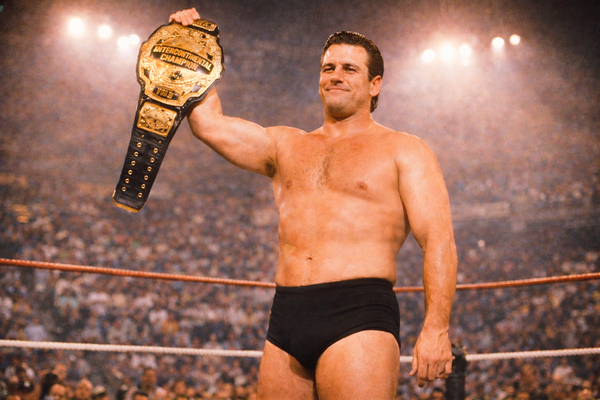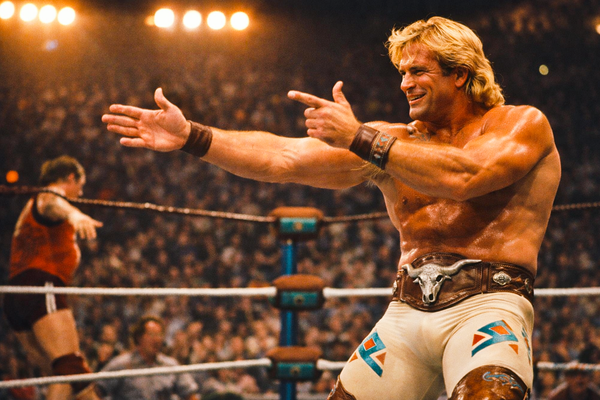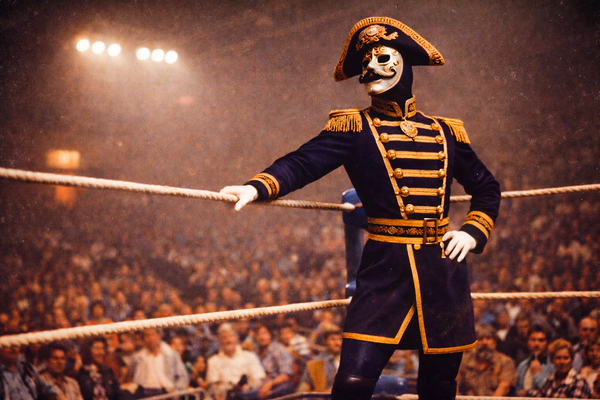Betamax
"Tomorrow's Man, Today" - a high-flying tech enthusiast ahead of his time. Betamax promised crystal-clear performance in silver trunks but delivered tragic obsolescence in an industry not ready for his futuristic vision.
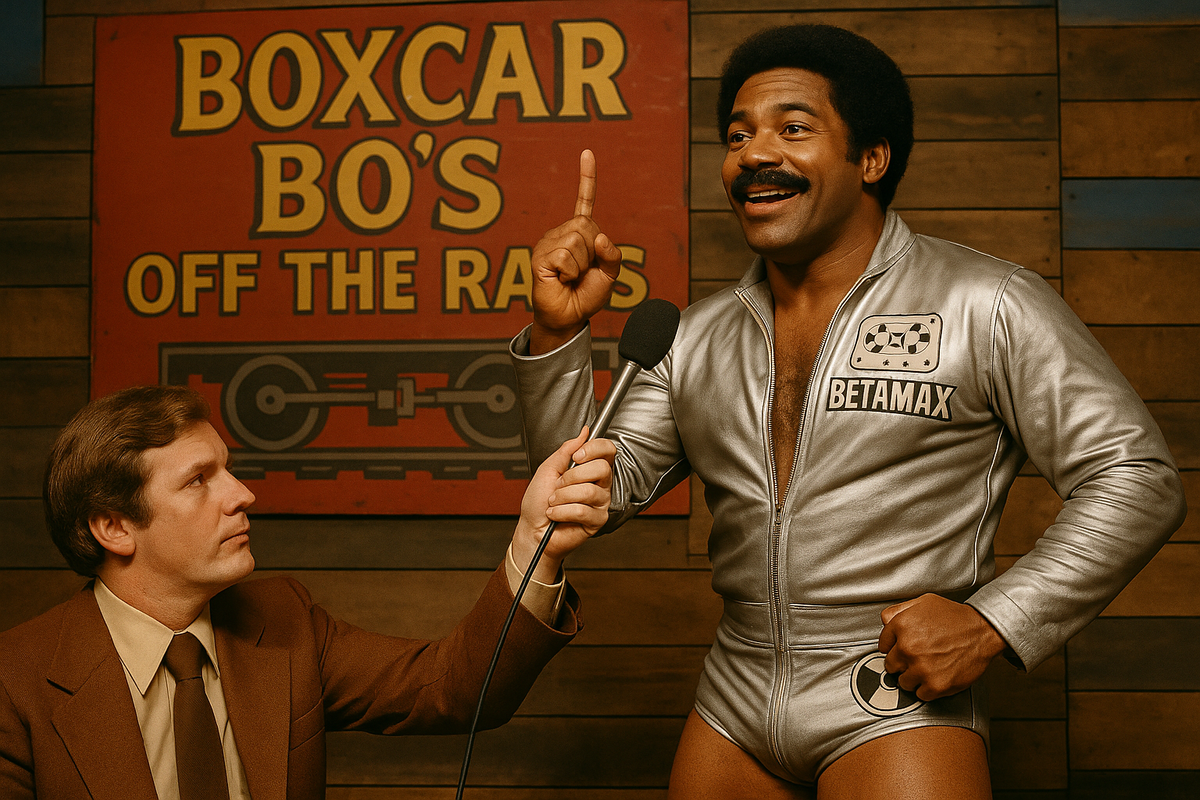
BASIC INFORMATION
Ring Name: Betamax
Nickname(s): "Tomorrow's Man, Today"
Origin: San Jose, California
Height: 5'10"
Weight: 201 lbs
Finishing Move: The Fast-Forward Dive (over-the-top suicide dive)
Entrance Music: "Program Start-Up" (synth-heavy instrumental inspired by Kraftwerk)
PROFILE
Background
Brent Maxwell was a former A/V club standout and high school gymnast who worked in a TV repair shop before discovering wrestling. Inspired by the tech boom and "portable entertainment" revolution of the late 1970s, he adopted the persona of a sleek, high-tech grappler who could "leap off the ropes like recorded playback." Despite innovative aerial work and cutting-edge moves, Betamax never connected with audiences accustomed to gritty brawlers. His silver gear, clean presentation, and sci-fi terminology made him a curiosity in cowboy country - technically proficient but emotionally distant. His reputation grew among tape traders and younger wrestlers who recognized his uncredited influence on cruiserweight evolution.
Personality Traits
- Earnest and polite, deeply invested in "modernizing" wrestling
- Technically obsessed with execution over emotional storytelling
- Condescending without meaning to be, speaking in training video language
- Never broke rules, rarely showed genuine emotion
PRESENTATION
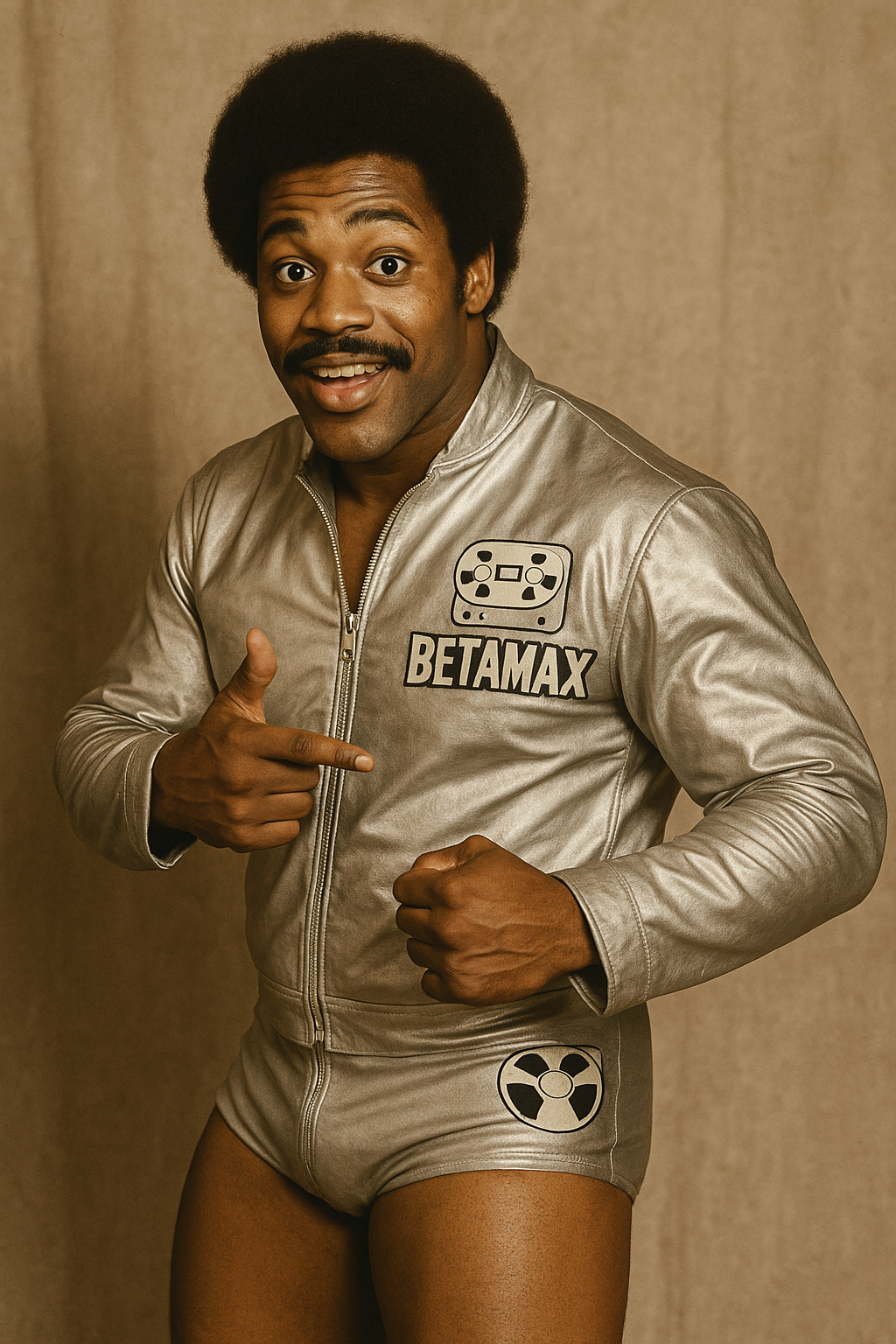
Physical Appearance
Clean, polished appearance that looked like he walked out of a 1978 tech trade show. Oval face with neatly groomed mustache and wide smile that never looked natural. Compact 201-pound frame with lean muscle definition. Walked with perfect posture, often pointing one finger upward like a TV antenna. Performed a distinctive "load-up" gesture before aerial maneuvers.
Ring Style
Aerial innovator with technical precision but lacking emotional rhythm. Specialized in springboard attacks, cartwheel moonsaults, and bridging victory rolls. Every movement was calculated and systematic, prioritizing flawless execution over crowd psychology. His matches felt more like gymnastics demonstrations than wrestling contests.
AUDIENCE CONNECTION
Catchphrases
- "Built for clarity. Programmed for action."
- "When you press play on Betamax... you get action in high fidelity."
- (Speaking about match preparation) "Amplifying performance metrics and synchronizing with viewer expectations."
Fan Interaction
Struggled to connect with traditional wrestling audiences. His technical innovation was ahead of its time, but his sterile presentation and incomprehensible promos alienated fans. Occasionally drew respectful silence for his athleticism, but never genuine heat or passion. Later gained cult following among tape traders who appreciated his forward-thinking approach.
LEGACY
Betamax's career represents both innovation and tragic timing. While his technical contributions influenced future generations of high-flyers, his inability to connect emotionally with audiences made him a cautionary tale about style over substance. Most significantly, his shocking defeat to Deacon Dark became the pivotal moment that allowed the Ministry of Night to escape the confines of Midnight Mayhem and terrorize the entire GWA roster. In losing the Television Championship, Betamax inadvertently became the catalyst for wrestling's darkest era - a technological prophet whose greatest contribution was his spectacular failure. His legacy lives on in the cruiserweight revolution he helped pioneer, even if few remember the man who came too early to a world not ready for his vision.


